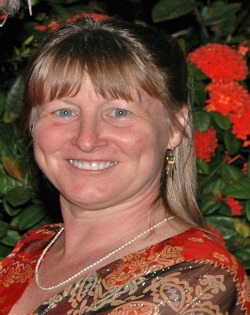Emeritus & Retired Faculty

- Professor, Emerita
English as a Second Language; Introduction to Linguistics; Introduction to College Writing; Writing in the Disciplines; English Grammar; Linguistic Analysis; Sociolinguistics and Psycholinguistics; Theories of Second Language Acquisition; Teaching and Testing ESL Grammar
Creole languages (specifically Limonese Creole), gender, and Kpelle vocabulary (Kpelle is a Mande language spoken in Liberia).
Elizabeth Grace Winkler earned degrees at Ohio University and Indiana University. Before coming to WKU, she held faculty positions at Columbus State University in Georgia and the University of Arizona, Tucson. In addition to her teaching experience, she has taught English as a second language at several universities in the US and in Monterrey, Mexico. She currently serves on the International Advisory board for the journal of Linguistics and Literature, a publication of the University of Costa Rica. She is also currently serving as a consultant to a group creating orthography of the Kpelle language, a language for which Winkler has authored the only existing dictionary. Winkler has authored an introductory linguistics text that is currently in its second edition as well as published scholarly journal articles and book chapters in edited volumes on creoles and gender.
Personal webpage: http://people.wku.edu/elizabeth.winkler/
I have two very different kinds of university teaching experiences each requiring different approaches to classroom learning. I have been teaching English as a second or foreign language for almost 20 years. The two approaches that most guide my teaching are student-centered learning and communicative language teaching. I believe that the students must be invested in the learning process before it becomes a meaningful experience for them.
Although my emphasis is on communicative language teaching, I use aspects of other methods in my day-to-day teaching. For example, I believe that students need a firm control of the grammar of a language to be able to successfully perform the communicative activities that I construct. In addition, I vary my teaching style and methods throughout each class in recognition of the fact that not all students have the same learning style. I have been able to help international students move from textbook-centered teaching practices in which they are passive receivers of information to student-focused learning in which they take responsibility for their learning. True acquisition of a language entails the ability to function in the day-to-day activities of the language community, which necessitates that students have the ability to analyze cultural events and act appropriately
The teaching of content courses in linguistics is somewhat different, though experiential learning is still my focus. The goal of any course is to make it both interesting and challenging and to show how the knowledge being gained by the students is of practical application or gives them insight into their lives, their work, or their cultural experiences. Another goal is to enhance their critical thinking skills and problem-solving abilities, skills necessary to any occupation they choose. I try to expose students to current and historical approaches and theories. It is important that they understand the base on which our current knowledge of the field of Linguistics is built. Ahistoristical approaches to any discipline only enable students to repeat the same process as all those who have gone before rather than building on what is already known.
Finally, I encourage the students in all my classes to be innovative and independent thinkers who are grounded in the core knowledge of the field and prepared to tackle the tasks they will encounter when they leave my classroom and enter their own classrooms as teachers or their own cultural communities as citizens with open and curious minds.

